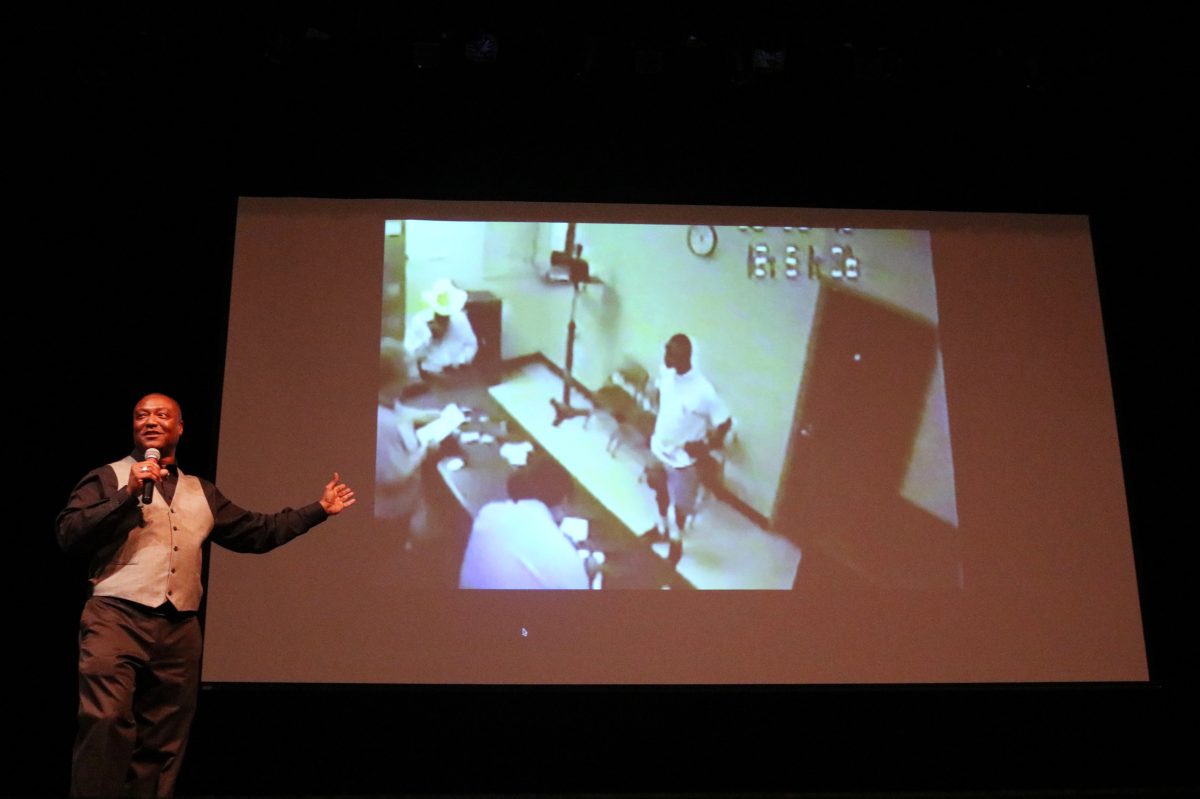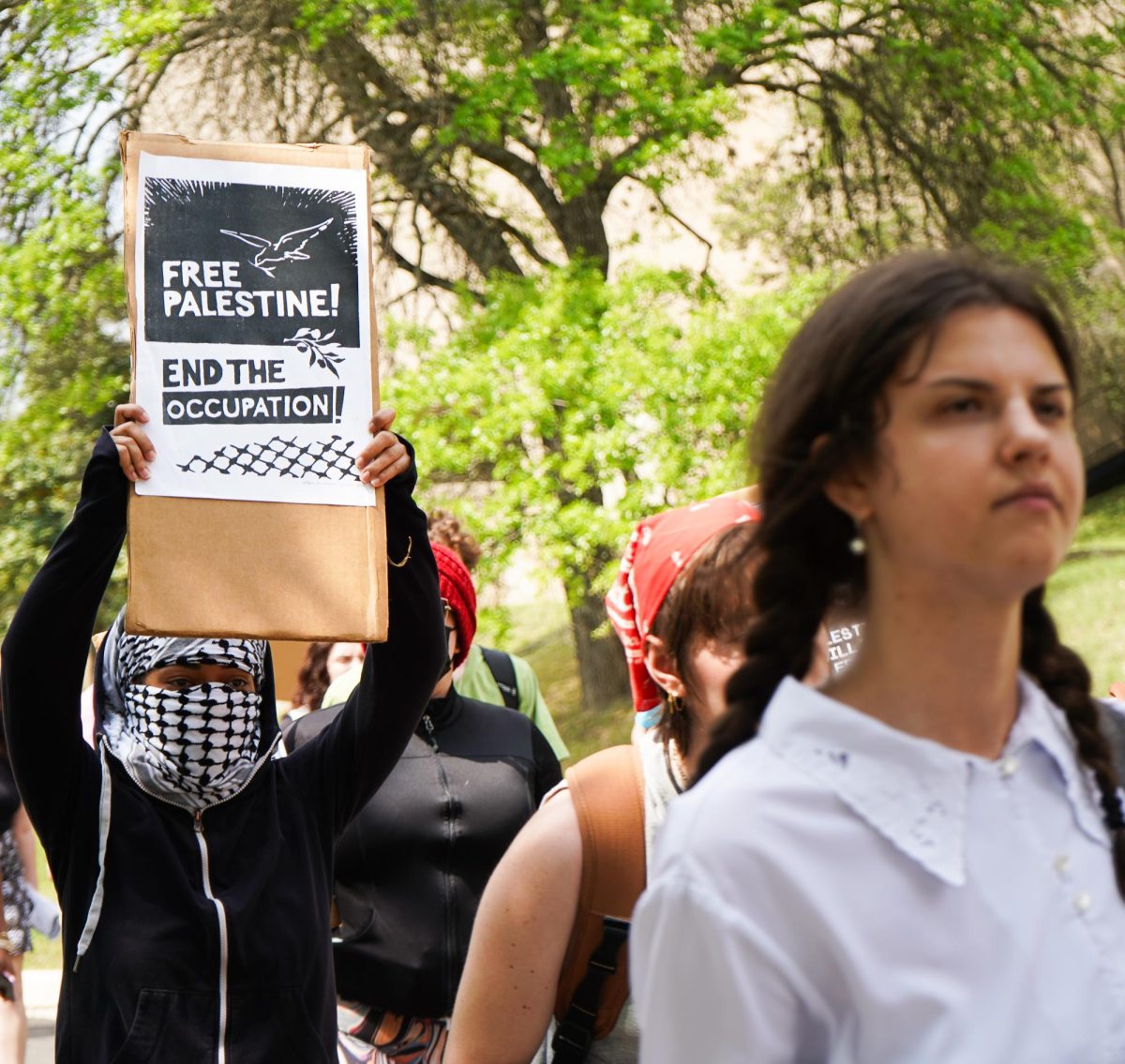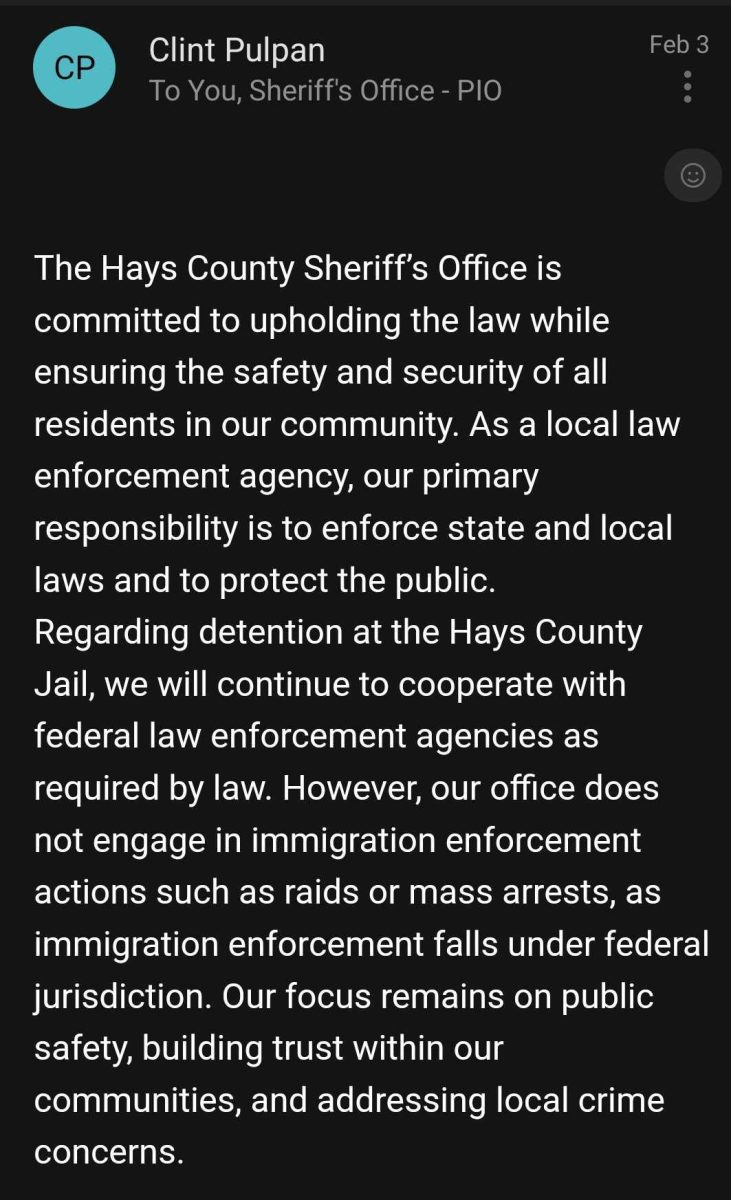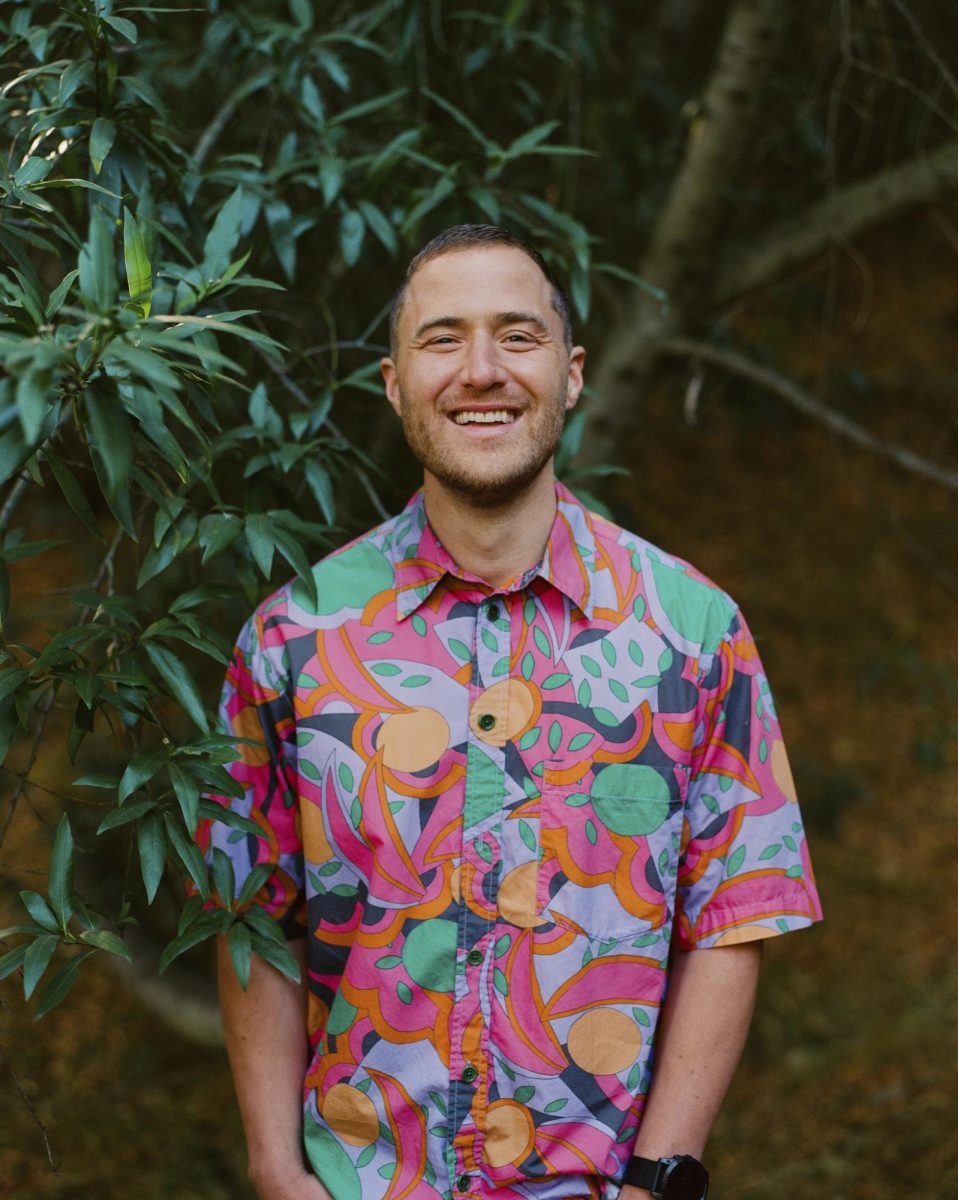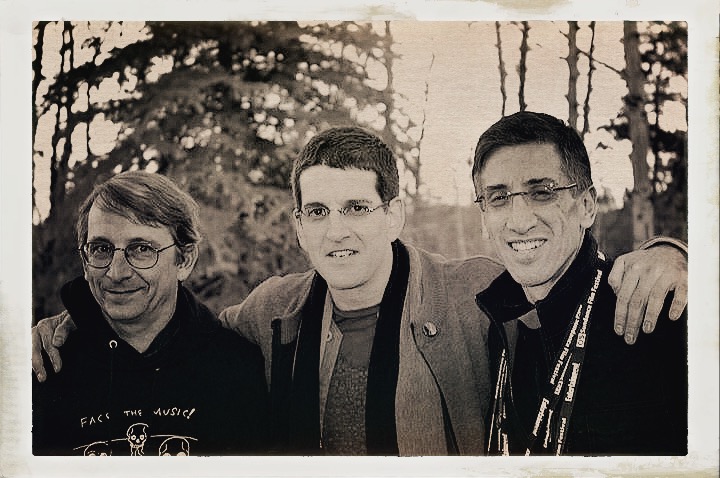Anthony Graves, also known as Death Row Exoneree 138, visited Texas State Oct. 10. Graves shared his story behind being wrongly convicted and spent 18 years in prison, 12 of which he spent on death row, and motivated students to take their frustrations by going to vote.
Graves’ visit to campus was a part of the 2017-18 Common Experience theme: The Search for Justice. Graves shared his story in the lecture held in Evans Auditorium. He explained the process of being falsely accused to the moment he called his mom when he was released.
“At the most, I thought maybe I have a traffic ticket I forgot to pay,” Graves said. “I never shot a gun in my life.”
Graves was charged with capital murder for the death of six people in Somerville, in 1992. He waited two years for trial, where 11 white jurors and 1 black juror convicted him of the crime. Two execution dates later, he was released in 2010.
Although Graves explained the effects media, racism and injustice had on his trial, he kept pointing to the importance of going to the ballot box and holding public officials accountable.
“We have a voice in this thing,” Graves said. “You got to use it, and you got to use it at the ballot box. You got to know who your nominees running for office are, what they stand for. We are at a place in our country where it is so important to take your voice to the ballot box.”
During the Q&A segment following Graves’ testimony, one attendee asked Graves how people can change the criminal justice system. Graves responded, “Find an organization and donate your time.”
Nathan Pino, a professor of sociology, said that Graves’ story doesn’t just tell a testimony, but it humanizes the larger issue.
“Graves puts a human face on important issues in the criminal justice system, and he can provide his personal experience with something that is usually discussed in the abstract in the classroom,” Pino said. “His story can show students how one can work to make things better and to never give up on working toward a better future.
Graves’ story vocalized the injustices behind the criminal justice system. Graves said unless someone makes more than $150,000 they are not exempt from the death penalty, even if innocent.
Shannon Fitzpatrick, an attorney for students, said that students need to familiarize themselves with our criminal justice system and act from there.
“We choose to execute people that do bad things, but more often than people would like to believe, we get it wrong,” Fitzpatrick said. “That is a huge risk, and it is pretty well understood that we have actually executed innocent people. Students need to understand the system that we have in place and either support it or try to change it for the better, but don’t just sit back and say ‘those are all bad people’ because as Anthony Graves (and hundreds of others) so clearly demonstrates, they are not all bad.”
Common Experience has events planned throughout the academic year, including more guest speakers and exhibits to emphasize justice.
Categories:
Former Death Row inmate: “Go to the ballot box”
October 17, 2017
Anthony Graves points towards a video showing the moment he was told he was being charged with capital murder on October 10 in Evans Auditorium.
Photo by Victor Rodriguez | Assistant Multimedia Editor
0
Donate to The University Star
Your donation will support the student journalists of Texas State University. Your contribution will allow us to purchase equipment and cover our annual website hosting costs.
More to Discover



